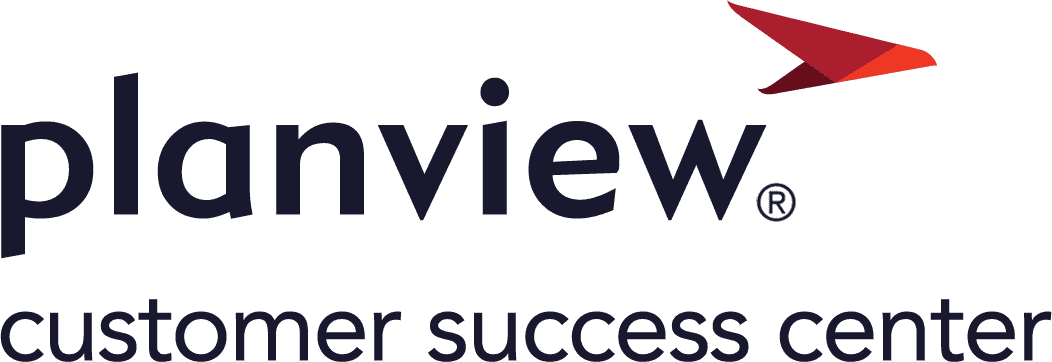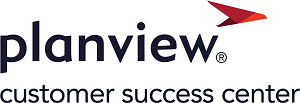Task
|
Description |
|
|---|---|
|
Basic Information |
|
|
Task # |
An automatically set number that sequences tasks based on their position in the task hierarchy |
|
Outline |
An automatically set value that displays both the phase or summary task number and position of the task in the hierarchy. |
|
Health |
If you have a health profile assigned to the project to which the task belongs, this field displays a health icon. See About Health Profiles for more information. |
|
Task ID |
Unique system generated identification number |
|
Title |
The title of the Task |
|
Owner: Last, First |
The person managing the Project. This person automatically has full rights to the Project |
|
Project |
The Project under which the task falls |
|
Summary Task |
The Summary Task under which the task falls |
|
Parent |
The parent item under which the task falls |
|
Type |
The kind of Task. The task types are defined by your system Administrator in Admin |
|
Billing Type |
Can only be set at the Summary Task level; all child tasks inherit value. Whether or not the task is billable or not. Non-Billable, Time and Materials, Fixed Bid and Not to Exceed |
|
Work Effort |
Can only be set at the Summary Task level; it provides a way to group tasks and report on them. The Work Effort field contains a set of values defined by your organization, typically corresponding to phases. When you assign a Work Effort value to a Summary Task, children of the Summary Task inherit the value. Then, for example, when users track time to the tasks, the hours are categorized by their respective Work Effort value. |
|
Priority |
The priority or importance of the task |
|
Sequence |
The order in which the task should be addressed relative to other tasks |
|
Is Capitalized? |
Can only be set at the Summary Task level; all child tasks inherit the value. |
|
Created By |
The user who created the task |
|
Last Modified Date |
The date of the most recent change to any editable field on the Basic Info screen. Does not include note additions or edits |
|
Dates |
|
|
Duration |
Duration is the total span of working time required to finish a task. Enter the number of working days, weeks, hours or minutes a task will take to complete. Tasks with a duration of 0 will be automatically set to Milestones. Duration can't exceed 7,300 days. Projects can span across a maximum of 20 years from today() - today's date. This means that a project could span more than 20 years as long as it does not go into 20 years from today() - today's date. A message showing that it can't span more than 20 years will display if this scenario happens. |
|
Start Date |
The date and time the Task begins |
|
Target Date |
The date and time you expect the Task to end |
|
Complete Date |
The actual date and time the Task completed |
|
Scheduling |
|
|
Constraint Type |
The Constraint Type on a task can control the Start or Target Date of a task. |
|
Constraint Date |
The Constraint Date on a task can be specified to influence the Start or Target Date of a task depending on the Constraint Type |
|
Manually Scheduled? |
Changing a task scheduling mode will determine whether the task Start and Target Dates are calculated using constraints and dependencies. |
|
Milestone |
Indicates the task marks a major event in a project and is used to monitor the project's progress. You can mark any other task of any duration as a milestone. Milestone tasks appear as diamonds on the task Gantt chart. |
|
Active? |
Indicates whether the task is an active or inactive task. |
|
Critical? |
Indicates whether the task is critical. Typically, if a critical task goes on longer than expected, project dates will slip. |
|
Total Slack |
The difference between the early finish for a task and late finish date. |
|
Has Scheduling Conflicts? |
A scheduling conflict occurs when a task dependency cannot be met. For example, a task with a Must Start On constraint might be dependent on a task that ends after the Must Start on date. See Schedule Conflicts for more information. |
|
Base Calendar |
The current calendar. By default the task uses the project's calendar. If you change the calendar, the task calendar takes precedence for scheduling over the project calendar. Please be careful when adding this field to your task category details and using it for a calendar that is different from the project calendar, particularly if you are using dependencies and given date rollups. For example, if your Summary Task is using the project calendar and its child task(s) are using a different Base Calendar, it can be very difficult understanding why dates are the way they are and don't align as expected, and can even result in errors. |
|
Progress |
|
|
Status |
Status is used to track the open or closed standing of the task |
|
Actual Hours |
The sum of all hours logged on timesheets for the task |
|
Task Hrs to Complete |
The sum of all Hours to Complete for the task |
|
% Complete |
A calculated value based on Actual hours and Hours to Complete for the task |
|
Budgets |
|
|
Hrs Budget |
The budgeted hours for the Task |
|
Cost Budget |
The budgeted cost for the Task |
|
Revenue Budget |
The budgeted revenue for the Task |
|
Estimates |
|
|
Est Hrs |
The estimated hours for the Task |
|
Est Cost |
The estimated time and expense costs for the Task |
|
Est Revenue |
The estimated time, expense and fixed bid revenue for the Task |
|
Description |
|
|
|
Detailed description of the task (4000 characters) |
|
Objective |
|
|
|
Detailed of the objectives for completion of your task (4000 characters) |
|
Notes |
|
|
|
Threaded note discussion area for the task |
|
Associated Tasks |
|
|
|
All tasks that have been manually associated to the task |
|
Associated Issues |
|
|
|
All issues that have been manually associated to the task |

